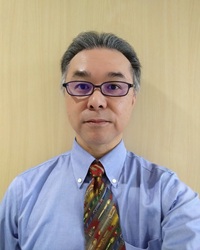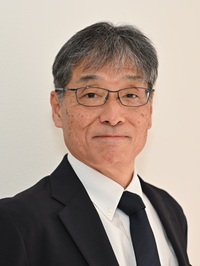
Message from the Director General
Fukushima Recovery and CLADS
Through research and development, CLADS advances the decommissioning of Fukushima Daiichi Nuclear Power Station (FDNPS) and the restoration of the environment, contributing to the revitalization of Fukushima. This is CLADS' primary mission. The goal of decommissioning FDNPS and restoring the environment of Fukushima is to eliminate the risk sources caused by radioactive nuclides released by the accident and sufficiently reduce the risks associated with activities and life in this region.
However, significant obstacles arise when attempting to eliminate these risk sources. In the case of decommissioning FDNPS, the risk sources include spent nuclear fuel debris, radioactive materials attached to building structures, and various radioactive wastes generated during the decommissioning process. Removing and managing these sources is challenging, as the high radiation levels at the site hinder the acquisition of information necessary for work execution and planning. Furthermore, it is essential to evaluate whether the safety of removed risk sources can be ensured using the same methods as previous radioactive waste management, and to ensure their safe management and disposal. In environmental restoration, the difficult-to-access mountainous forests and the complex urban landscape make it difficult to obtain information on the distribution of radioactive materials. The difficulty in acquiring information beforehand means that there is a significant degree of uncertainty in the plans, and flexibility is required to address this, necessitating a wider range of technologies and a greater number of options.
CLADS, we possess the means to overcome and break through these challenges. This capability stems from a combination of factors: a team of researchers and engineers with diverse research backgrounds, leveraging facilities and equipment from other JAEA locations, collaborating with other projects, drawing upon JAEA's decades of experience, knowledge, and technology in handling radioactive materials, fostering organic collaborative networks with domestic and international research institutions, and engaging in close cooperation with local communities. CLADS aims to generate new insights and technologies by organically connecting people, resources, and knowledge beyond individual research fields, ultimately developing a range of technical options to tackle formidable challenges.
In the challenging recovery activities surrounding the decommissioning of the FDNPS and the restoration of the environment, the development of marketable new technologies, or the utilization of what was once considered waste as valuable assets, is essential to generate profit from these activities and achieve sustainable development. CLADS is committed to advancing research and development not only to contribute to the reconstruction of Fukushima but also to foster the sustainable development of this region.

Director GeneralKazuki IIJIMA
I was interested in nuclear power and entered the university to study nuclear engineering. After being assigned to a research laboratory, I traveled between Sendai and Tokai-mura several times a year by using my professor's or my friends' car to participate in experiments at the facility in Tokai-mura. We left Sendai for Tokai-mura in the early evening, around 5 or 6 pm, when our professor's work was finished. At the time, the Joban Expressway was only open as far as the Iwaki-chuo IC, so we drove down the Hamadori region of Fukushima Prefecture on National Route 6, heading south, and pass through the entrance to the Fukushima Daiichi Nuclear Power Plant and the entrance to the Fukushima Daini Nuclear Power Plant as headlights of cars cut through the darkness of the road at around 8 or 9 pm. I still remember our conversation in the car at the time, saying, “So this is where the nuclear power plant is.” Also, I was at an age when I was so happy to be getting behind the steering wheel that I would go for drives with my friends around the Matsukawaura area.
I have a renewed sense of the heavy fact that the accident at the Tokyo Electric Power Company Fukushima Daiichi Nuclear Power Plant has had an enormous impact on this area, which is part of my fond memories from my student days, and has changed the lives of many people, since I started living in Tomioka Town. As a person who has studied and promoted nuclear energy, I have renewed my belief that engineers must be respectful and humble.
As the nation's only comprehensive research organization for nuclear energy, JAEA has a responsibility to make every effort to ensure that the residents of this area can return to their homes with peace of mind and continue to live their lives as before. The Collaborative Laboratories for Advanced Decommissioning Science (CLADS) has been promoting research to steadily advance the decommissioning of the Fukushima Daiichi Nuclear Power Plant, which is the purpose for which it was established. To ensure that this steady approach is maintained, it is more important than ever that researchers with their philosophies are fostered, that research activities are put into practice with an open and progressive mind, and that the research results should be disseminated in an organized and effective manner. CLADS needs to be an organization where those functions are effectively achieved.
My role is to support Director Iijima and create an environment in CLADS where all researchers and engineers can fully demonstrate their abilities and advance their research with reason and passion, and to this end, I will continue to make every effort with the utmost humility. I would like to ask for the understanding and cooperation of all those involved in the activities related to CLADS.

Deputy Director GeneralKenya SUYAMA